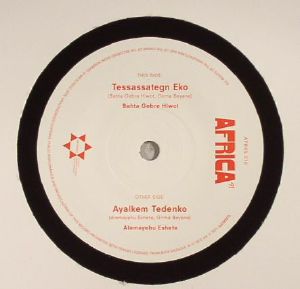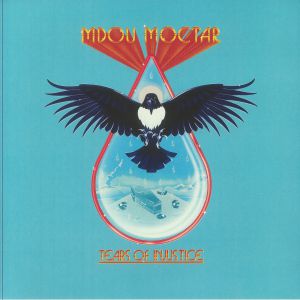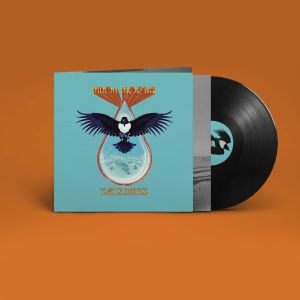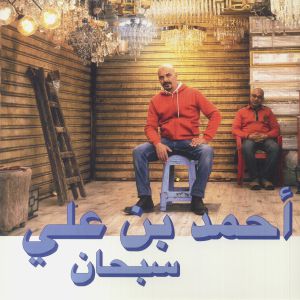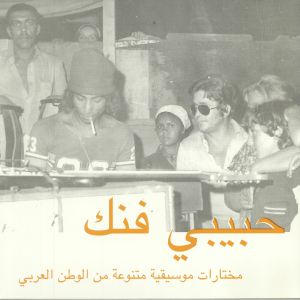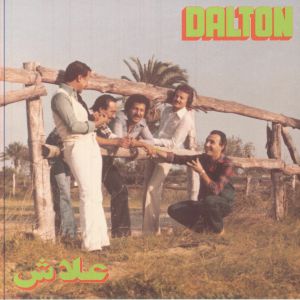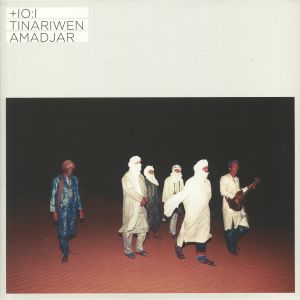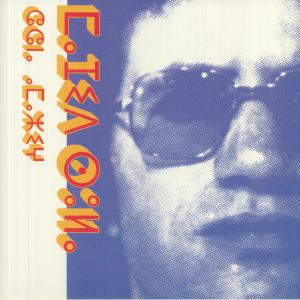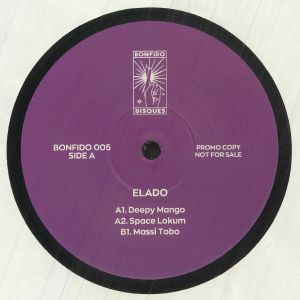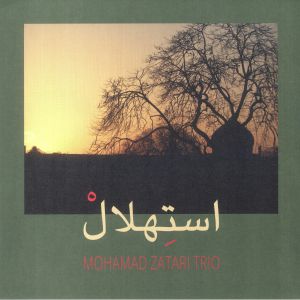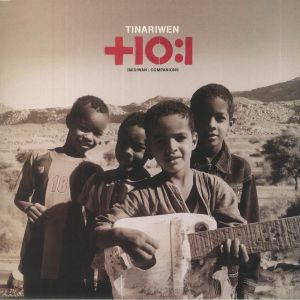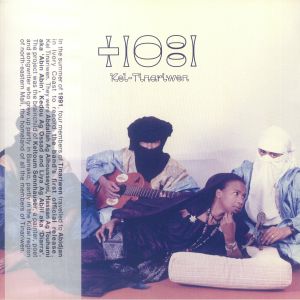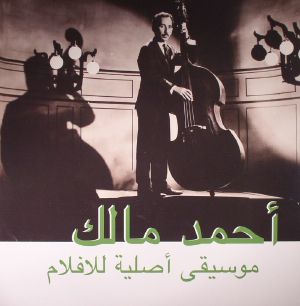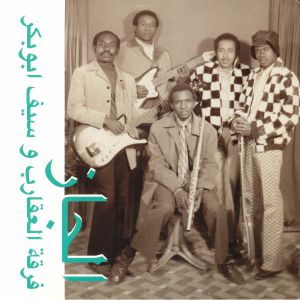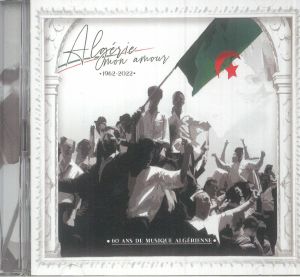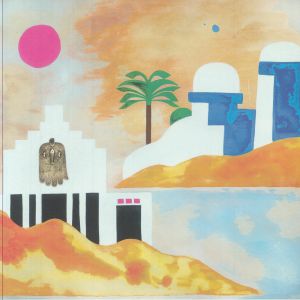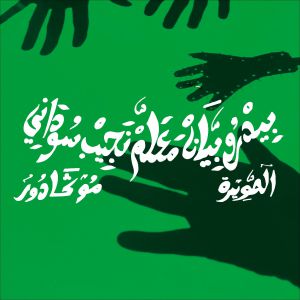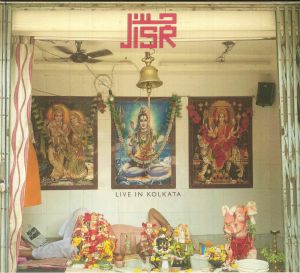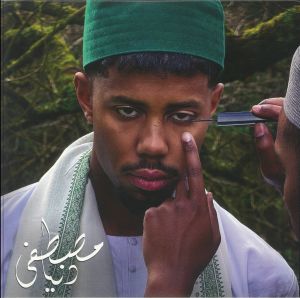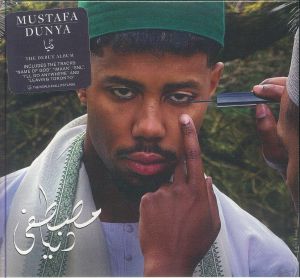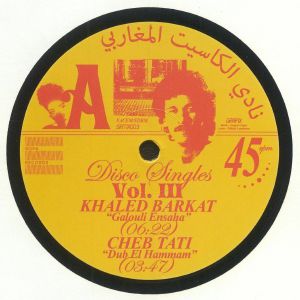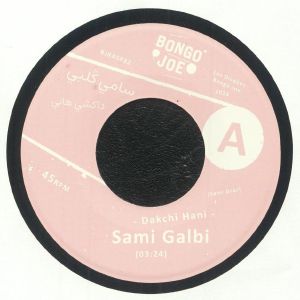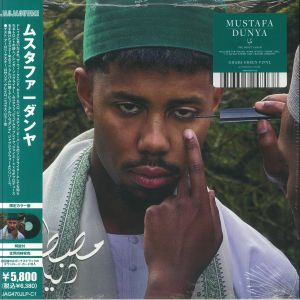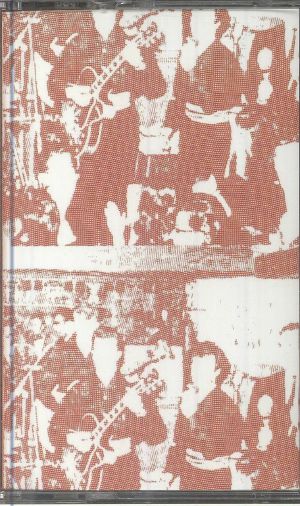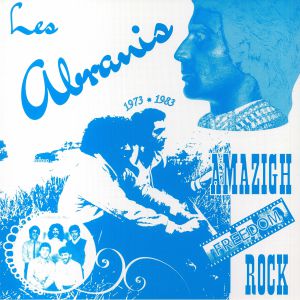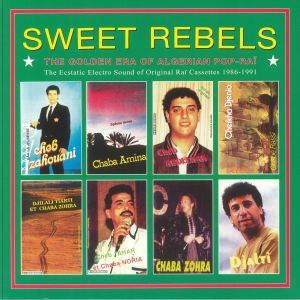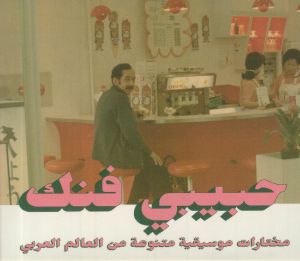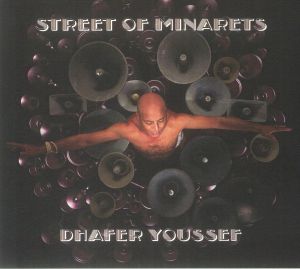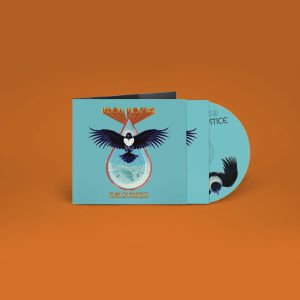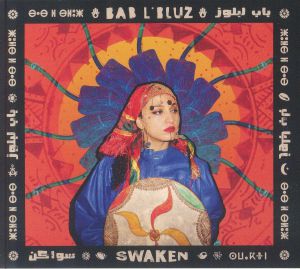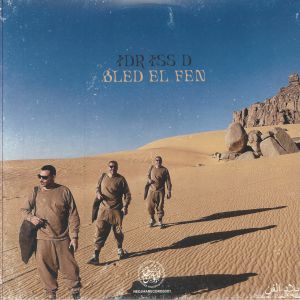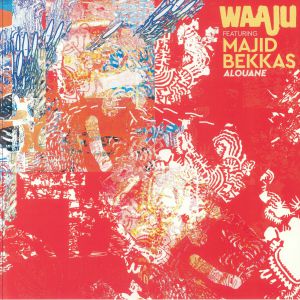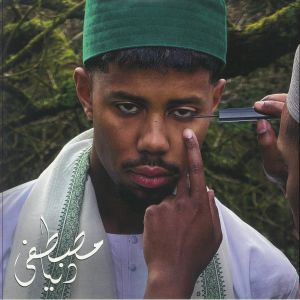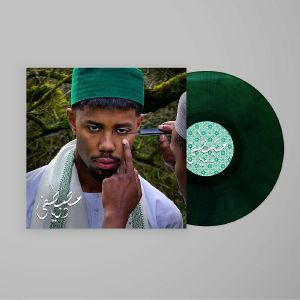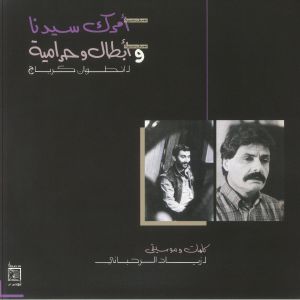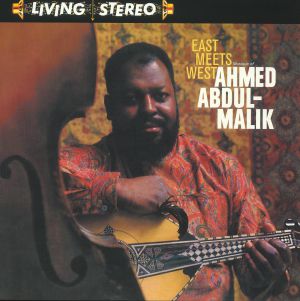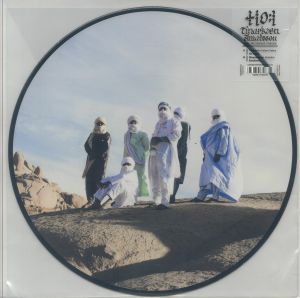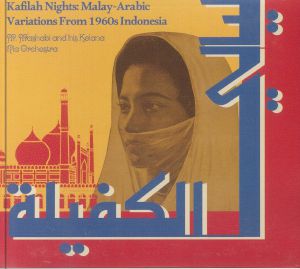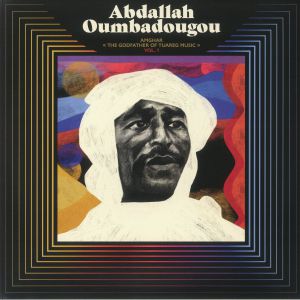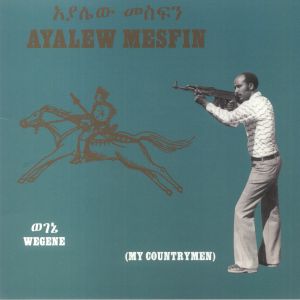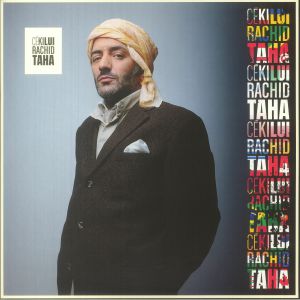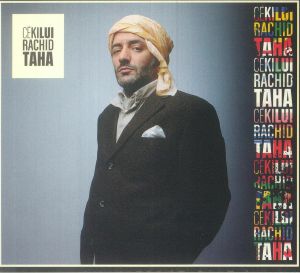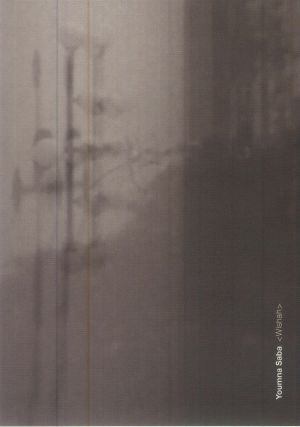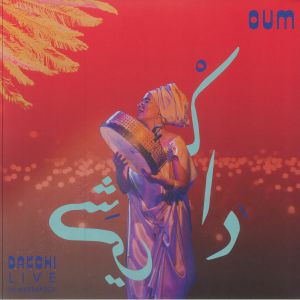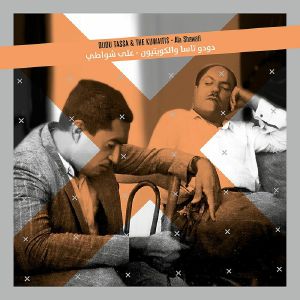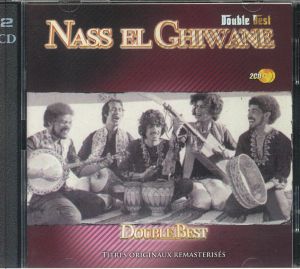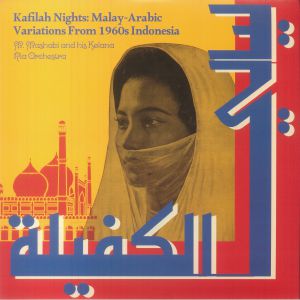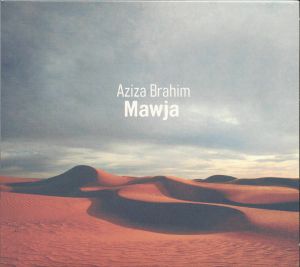Filter
アーティスト
レーベル
Featured
リリースタイトル
値段
タグ
58
Arabic
33
African
10
Psychedelic Rock
6
Afro Rock
5
Middle Eastern
4
Afro Jazz
4
Middle Eastern Funk
4
Psychedelic Funk
3
African Disco
3
Afro Funk
3
Afro House
3
Ethiopian Jazz
2
Balearic Disco
2
European Experimental
2
Experimental Folk
2
Indonesian
2
Psychedelic Jazz
1
Asian
1
Disco Funk
1
Disco House
1
Dub Reggae
1
Experimental Jazz
1
Hi-NRG
1
Highlife
1
Indian
1
Italian
1
Middle Eastern Jazz
1
Middle Eastern Rock
International charts
Bestselling International vinylTessassategn Eko (limited 7")
Cat: AFR 45016. Rel: 14 Jun 16
Review: Afro 45's / Mr Bongo show no signs of stopping their tireless run of form and, 7" after 7", they just keep on producing the goods. There's yet more '70s goodness with this new little scorcher: the A-side is 1973's "Tessassategn Eko" by Bahta Gebre Hiwot, a pensive Ethiopian pop hit for all sorts of music fans to enjoy, but "Ayalqem Tedqem" by Alemayehu Eshete on the B-side is where it's at... just listen to that bass and you'll instantly recognize this wonderful little cover.
… Read more in stock $12.00
Review: Nigerian singer, songwriter, and guitar legend, Mdou Moctar should need no introduction if you keep an ear to the ground of sub-Saharan African music. Then again, the vague region covers a vast area - land in all four hemispheres and around 15% of the Earth's walkable surface. So you could be forgiven for missing out on an individual artist if, for example, you weren't already looking for them specifically. Or relied on Western culture media for tips on what to hear next. That said, problematically tunnel-visioned as the North Atlantic-hegemony of commentators can be, Moctar has been something of a darling to UK, European and US musos for a while now. On Tears of Injustice he presents a convincing case for their continued adoration. A master of Tuareg, a style of music also known as desert blues, it's an intoxicating sound that easily transports and invokes, even if the predominantly Tamasheq language he sings in remains a mystery - arguably another factor in the powerful mythology surrounding his legacy.
… Read more in stock $24.56
Review: Mdou Moctar's reimagining of his work presents a powerful counterpoint to the blistering original. Recorded in the wake of a political crisis that left the band stranded in the US, this acoustic version strips back the aggression, replacing it with raw grief. The band, recording in Brooklyn's Bunker Studio, brings a new, meditative quality to the music, with the songs remaining heavy but haunting in their unamplified form. The standout 'Imouhar' takes shape through two rapid-fire passes, seamlessly merged into one hypnotic take. Where the original album burned with anger, this version captures the sadness and sorrow of a nation caught in perpetual turmoil.
… Read more in stock $22.91
in stock $19.92
VARIOUS
Habibi Funk: An Eclectic Selection Of Music From The Arab World (2xLP + booklet)
Cat: HABIBI 0071. Rel: 14 Dec 17
Review: Habibi Funk has subtitled this tasty label compilation "an eclectic selection of music from the Arab world". It's an apt description, because the double vinyl set is little less than a whistle-stop tour of killer cuts from North Africa and the Middle East. Amongst the dirty and driving Morccoan funk (see Fadoul's righteously heavy opener), Arabic rock and roll (the Beatles-in-Timbukto flex of Jalil Bellis), Lebanese disco, Sudanese throw-downs and Algerian floor-burners, you'll find a quintet of previously unreleased tracks discovered during the label's extensive vault-digging explorations around the Arabic world. We can think of few finer introductions to vintage Arabic dance music, to be honest, and would heartily recommend it.
… Read more in stock $32.73
Review: Boom! Ultra rare outernational funk reissue action by the new Habibi Funk imprint! Dalton were a late '60s soul band formed in Tunis by a group of American music enthusiasts, and their one and only LP under the Dalton name was independently released and super rare until now. "Alech" nears psychedelic territories thanks to its echoing vocals and trippy percussion, whereas "Soul Brother" is more of a classic soul ballad, but filled with the band's own native roots, of course. Be sure to check, this is hot and recommended for the diggers.
… Read more in stock $16.10
Amadjar (limited gatefold 2xLP + booklet + MP3 download code)
Cat: COOP 011LP. Rel: 06 Sep 19
Review: Malian musicians have a rich history when it comes to turning the world on to organic, mystifying, exotic sounds. A country that - even for Africa - stands out as a hotbed of aural talent, artists hailing from the desert nation never fail to immerse and intoxicate us. Here tracks grow and groove like a hypnotist at work, embracing Western influences, not least psychedelic rock, to produce what might have happened if Jim Morrison went walkabout in the Sahara looking for inspiration. As an album, "Amadjar" is everything that description might make you hope for. Opening on the delicate, spatial guitar plucks of "Tenere Maloulat", you can see the oasis shimmering in the distance through heat vapour. Evocative stuff, from there it only pulls us in deeper into an amalgamation of sounds overflowing with an adventurous atmosphere.
… Read morePlayed by: MUSHROOMS PROJECT, Juno Records Staff Picks
in stock $32.47
Chant Amazigh (LP + booklet + MP3 download code)
Cat: HABIBI 0171. Rel: 16 Dec 21
Review: Majid Soula is someone who uses music as activism. The Algerian-born, Amazigh artist lays down prominent guitar lines with driving drums and snaking synth lines to blend together worldly sounds such as highlife, disco, Kabyle sounds and funk. The sounds become a vehicle for Soula's political message which he delivers with style and wit. The artists says he is someone whose first concern is "to present a quality artistic work in order to contribute, however modestly, to the development and enrichment of our cultural heritage." He does it and then some with this more absorbing of records. It is sure to become a collector's cult classic.
… Read more in stock $28.66
Review: After successfully showcasing his wares via EPs on GAMM, Razor N Tape and Barefoot Beats, fast-rising re-editor Elado pitches up on Bonfido Disques for the very first time. The resultant 12" contains some of his most interesting re-edits yet, with Elado cunningly opting for eccentric and oddball source material. 'Deepy Mango' sounds like a cross between proto-house, post-punk synth-pop and Kwaito - and that's a great thing in our book - while 'Space Lokum' is a throbbing revision of what sounds like a North African electro-disco obscurity (an Arab take on the Giorgio Moroder sound, basically). Over on the flip, 'Massi Tobi' is a boogie-era tropical disco gem from the Francosphere given a subtle makeover. In a word: excellent!
… Read more in stock $13.65
Played by: Juno Recommends International
in stock $18.54
in stock $25.08
Kel Tinariwen (gatefold LP + MP3 download code with obi-strip)
Cat: WEDGELP 0122. Rel: 03 Nov 22
Review: The resurgence of interest in vinyl has brought with it plenty of spotlight for niche acts like Tinariwen. The Mali-based desert blues specialists are now frequently found on the playlist of eclectic Das and NTS radio hosts, and so they should be. This new album is actually an old one - Kel Tinariwen is an early cassette tape recorded in the 90s that has not been released before. It hones in on the political issues of the time and is a raw sound compared to how Tinariwen went on to sound, but still has all the hypnotic guitar lines and call-and-response vocals that make it distinctly them. Add in raw drum machine rhythms and keyboard melodies and you have an alluring and Arab-tinged take on synth-pop that really gets you where it hurts.
… Read morePlayed by: Juno Recommends International
in stock $27.56
Musique Original De Films (LP + booklet)
Cat: HABIBI 003. Rel: 19 May 16
Played by: Yiannis 'Nova' Dorakis
in stock $27.56
Jazz Jazz Jazz (LP + booklet)
Cat: HABIBI 0091. Rel: 08 Nov 18
Review: Habibi Funk co-founder Jannis Stuertz first came across "the Holy Grail of Sudanese funk", Saif Abu Bakr and The Scorpions "Jazz, Jazz, Jazz", while browsing eBay listings a few years back. His interest piqued, he took a trip to Sudan to track down the musicians who had made a ridiculously rare LP that was changing hands for thousands of pounds online. Some four years later, his wish to reissue the set has finally come through. It was originally recorded in Kuwait in 1980 and brilliantly joins the dots between American funk, soul and rhythm and blues, traditional Sudanese vocals and rhythmic arrangements, and even a dash of Congolese soukkous. It's the first full album Habibi Funk has reissued, and with good reason: it's near perfect from start to finish.
… Read more in stock $26.75
VARIOUS
Cat: MLP 00955. Rel: 06 Jun 23
in stock $17.20
in stock $47.48
Review: Recorded in Essaouira, Morocco, Pedro Vian and Maalem Nabob Soudani present an exercise in melding the traditional and unorthodox, the old and new, the abstract and the direct, the exotic and, well, something even more exotic. Rooted in the Gnawa sound, but leaning heavily into deep electronic worlds, EMS AKS Synthi and buchla meet the qrebeb and guimbiri, everything contrasting yet complementing. The result is this intoxicating brew that transports you to the North African coastline on which this collection was conceived and captured, and then onto somewhere that's almost beyond the terrestrial. Close your eyes, allow the hypnotic looped musical phrases and organic aesthetic of the recording itself to wash over you, through, and around your body. Something to truly get lost in and a fantastic example of cross-pollination done properly.
… Read more in stock $26.75
Played by: Juno Recommends International
in stock $13.92
in stock $32.47
Beauty, End
Old Life
Gaza Is Calling
Leaving Toronto
Hope Is A Knife
Nouri
in stock $17.20
Cat: BJR 12005. Rel: 22 Oct 24
Review: Bongo Joe and Sofa Records' third instalment of the Maghreb K7 Club Disco Single series dives deep into Algeria's vibrant 1980s scene, offering four tracks that shine a light on the region's overlooked gems. The A-side is led by two irresistible pop-boogie-funk tracks from Khaled Barkat: 'Galouli Enshara' and 'Zourini'. Self-taught and self-produced in 1983, Barkat's music was a hit at the time but got overshadowed by the rising tide of rai. His dynamic collaboration with Yazid Fentazi, Redouane Ayoub, and Mhenni Benlala resulted in a sound that blends infectious grooves with local flair. Now, for the first time, these tracks are on vinyl, offering fresh ears the chance to rediscover a key player in Algeria's pop history. Cheb Tati takes over on the B-side with 'Dub El Hammam', a heavyweight dub number that showcases his range as a rai vocalist. Tati was flown to London in 1989 to work with dub pioneer Denis Bovell, and this track is a standout from their sessions, merging the pulsating rhythms of reggae with a distinctly North African flavour. Closing out the release is the Kabyle band Asif, whose only known recording, 'Tafsut', serves as a fitting finale. Formed by three brothers in Lille during the late 70s, this beautifully crafted pop-boogie track captures the band's unique sound, bringing a sense of nostalgia and triumph to the collection.
… Read more in stock $25.92
Review: Sami Galbi is a Swiss-Moroccan musician who looks to his childhood for musical inspiration. The A-side of this new 7" is a thoughtful post-breakup classic with raw synths and bouncing rhythm that melds rai influences with contemporary sounds and despite tacking a serious subject with gravitas also has a humourous edge. On the flip is 'Rruina,' a powerful follow-up with deeper darker club sounds that take Swiss-Moroccan rai-chaabi fusions into new territory. Both tunes are captivating listens from this fine talent and are sure to make an indelible impression on all who hear them.
… Read morePlayed by: Voodoocuts, Juno Recommends Hip Hop/R&B
in stock $14.19
in stock $58.40
BODEGA POP / VARIOUS
Cat: DEATH 095. Rel: 20 Mar 25
in stock $14.74
Amazigh Freedom Rock 1973-1983 (LP + insert + MP3 download code)
Cat: BJR 020LP. Rel: 25 May 23
Review: Les Abranis are a pioneering Algerian band known for having mixed up traditional Berber music with Western rock, folk, disco and funk. At the same time they never lost sight of their Kabyle heritage and as such really made a mark on the Maghrebi music scene all across the world from Algeria to France. This new collection Amazigh Freedom Rock 1973-1983 comes five years after Chenar le Blues / Avehri and is a deep dive into the band's discography. It spans everything from their early garage-rock experimentations to lush orchestrations and North African fusion gems from the 1980s.
… Read more in stock $28.11
VARIOUS
Cat: WWSLP 101LP. Rel: 27 Mar 25
Review: Dating back to the 1920s, rai music emerged in Algeria as a synthetic hodgepodge of Islamic regional and religious musical styles with Western harmony and electronic instrumentation. Located in the major coastal city of Oran, rai music bisected a nighttime economy that emphasised bawdy nightclubs and cabaret, resulting in a distinctive Andalusian-Arabian style. This new compilation from Wewantsounds, joined with curating musician and rare vinyl record exponent Cheb Gero, documents the very cream of the rai scene from the time of the late 80s and early 90s. Cheb Zahouani, Chaba Zohra and Abderrahmane Djalti all epitomise the dashing verve of this mostly tape-bound scene.
… Read more in stock $34.92
VARIOUS
Cat: HABIBI 015CD. Rel: 12 Aug 21
Review: Since launching a few years back, Jannis Sturtz's Habibi Funk label has done a terrific job in sourcing and reissuing generally brilliant music from North Africa and the Middle East. The label's second multi-artist compilation does a good job in proving this point by offering up a pleasingly eclectic range of "historic popular music from the Arab world". There's much to enjoy, from the Steely Dan-esque West Coast warmth of Douaa's 'Haditouni' and the heavy psych-funk of 'Ahl Jedba' by Fadoul, to the synth-sporting riff on the Bee Gees' 'Staying Alive' that is Najib Al Housh's 'Ya En Daly', and the slow motion, reggae-driven sunshine pop of Ibrahim Hesnawi's 'Tendme'.
… Read morePlayed by: AfroBase (Radio Chart), Juno Recommends International
in stock $15.27
in stock $15.01
in stock $10.91
in stock $12.00
in stock $31.39
Review: Waaju & Majid Bekkas's Alouane exemplifies the power of collaboration during challenging times. As bringing overseas artists to the UK grows increasingly difficult, this record bridges cultural and generational gaps while capturing the vibrant energy of live collaboration post-Covid-19. Conceived by Waaju bandleader Ben Brown, the album features his expansive arrangements of traditional Gnawa songs and blends Bekkas' musical prowess with Waaju's signature grooves and trippy delays. Bekkas, a key figure in Moroccan Gnawa music, had never collaborated with a UK band until this project. Alouane, meaning "colours" in Arabic, reflects the seven integral colours of Gnawa music, each invoking different spirits.
… Read morePlayed by: AfroBase (Radio Chart)
in stock $32.70
in stock $30.02
Dunya ("ghaba green" transparent green & black smokey vinyl LP)
Cat: JAG 470LPC1. Rel: 26 Sep 24
Review: Mustafa's masterfully crafted new debut album is called Dunya which translates from Arabic to "the world in all its flaws." The Sudanese-Canadian artist digs deep into religious devotion, childhood trauma, gang violence and romantic intimacy in hugely personal ways throughout the record and showcases his superb songwriting ability. His blend of genres from hip-hop to soul and r&b comes with novelistic details, lasting hooks and raw and earnest words. It features appearances from collaborators such as Aaron Dessner, Rosali?a, Clairo and Nicolas Jaar but amongst all that Mustafa's confident, distinctive voice shines bright.
… Read more in stock $30.56
Amrak Seedna & Abtal Wa Harameyah (remastered) (LP + insert)
Cat: WWSLP 86. Rel: 02 May 24
Played by: Ex-Friendly (Truth & Lies Music)
in stock $27.02
in stock $21.82
Amatssou (Deluxe) Bonus Tracks (limited 12" picture disc)
Cat: WEDGEEP 0123. Rel: 29 Feb 24
in stock $24.84
in stock $24.56
Amghar: The Godfather Of Tuareg Music Vol 1 (gatefold 2xLP)
Cat: PTAL 71. Rel: 29 Feb 24
Review: Amghar: The Godfather Of Tuareg Music Vol 1 by Abdallah Oumbadougou is a superb trip into the heart of the ever fascinating sound of Tuareg music. Oumbadougou, revered as the godfather of this rich musical tradition, delivers a spellbinding collection of tracks that showcase his mastery of desert blues. Each composition is a testament to the deep cultural heritage and spiritual resonance of Tuareg music. They blend hypnotic rhythms, intricate guitar work and haunting vocals all with a melancholic and seductive feel from the soul-stirring chants of 'Afrikya' to the infectious energy of 'Tabsiq Dalet'. This album transports listeners to the vast landscapes of the Sahara, evoking a profound sense of wanderlust and timeless beauty as it does so.
… Read morePlayed by: Juno Recommends International
in stock $61.41
in stock $30.56
in stock $34.38
in stock $16.65
in stock $12.82
in stock $47.48
Ala Shawati (10th Anniversary Edition) (LP + insert)
Cat: WCV 110. Rel: 23 Jan 25
Review: Dudu Tassa is one of Israel's top rock stars and here he honours his heritage as the grandson of the great Daoud Al Kuwaiti, half of the legendary Al Kuwaiti Brothers, who were icons of Arabic music from the 1930s to 1950s. He does so by modernising their classic recordings and creating a new, unique fusion of sound that has led to him performing at Coachella and supporting Radiohead on a U.S. tour. This new album edition includes a bonus track, 'Ala Shawati Dijlah Mur,' featuring Iraqi singer-composer Karrar Alsaadi. This is worldly, transportive music that travels through time and cultures with an inescapable underlying groove.
… Read more in stock $30.02
in stock $18.29
in stock $24.29
Kafilah Nights: Malay-Arabic Variations From 1960s Indonesia (180 gram vinyl LP + booklet)
Cat: ELE 035. Rel: 05 Dec 23
Review: The musical orchestral form that is Orkes Melayu (the Malay Orchestra) finally emerges from the shadows. In the early 1960s, two of the foremost talents from the Indonesian music scene - songwriter and band leader Adi Karso, known for his hits 'Papaya Cha-Cha-Cha' and 'Balonku' and Gambus musician Munif Bahasuan - teamed up to form the Malay-Orchestral band Kelana Ria, known to some as the "Robert Johnson" of Indonesia. Between 1961 and 1964, they recorded 48 songs spread over four records - Kafilah, Yam El Shamah, YaMahmud and Ya Hamidah - which became the primary sources for this compilation. 'Renungkanlah (Think About It)', included on this compilation, is a love song with heavenly melodies and lilting harmonies; to an audience in the Western part of Malaysia, or people of Malay ethnicity in Singapore, most are predisposed to immediately hum along out of recognition.
… Read more in stock $30.84
Played by: Juno Recommends International
in stock $13.09
Live In Paris: Les Astres d'Orient Vol II (gatefold 2xLP in embossed sleeve)
Cat: DRCDSLP 7. Rel: 26 Jan 24
in stock $27.56

 USD
USD






